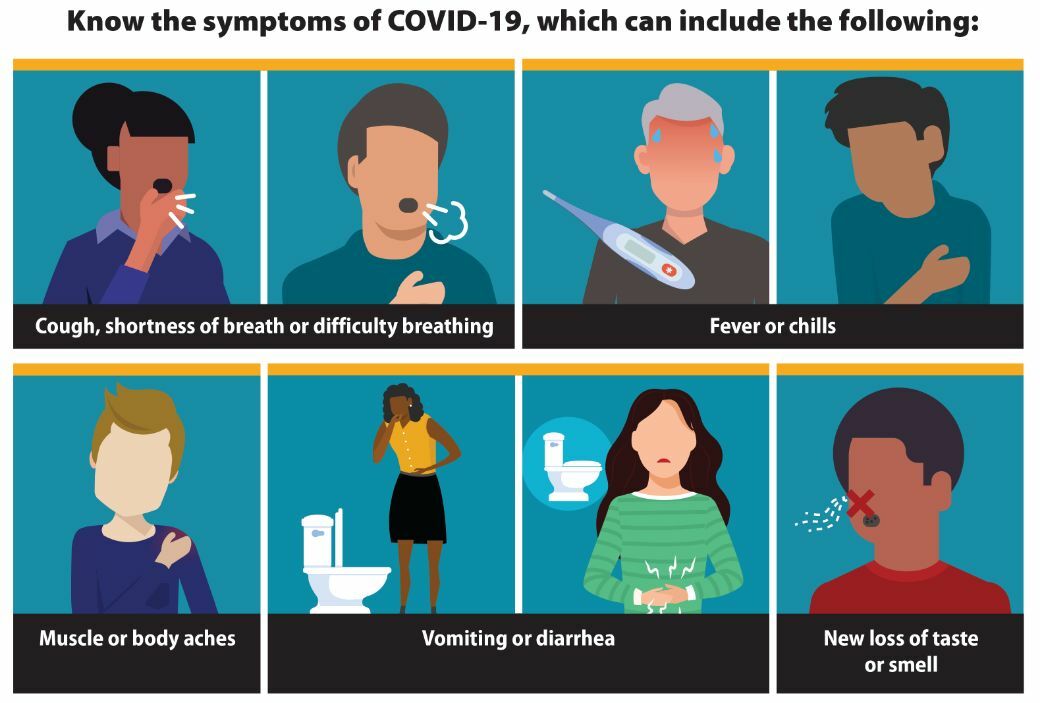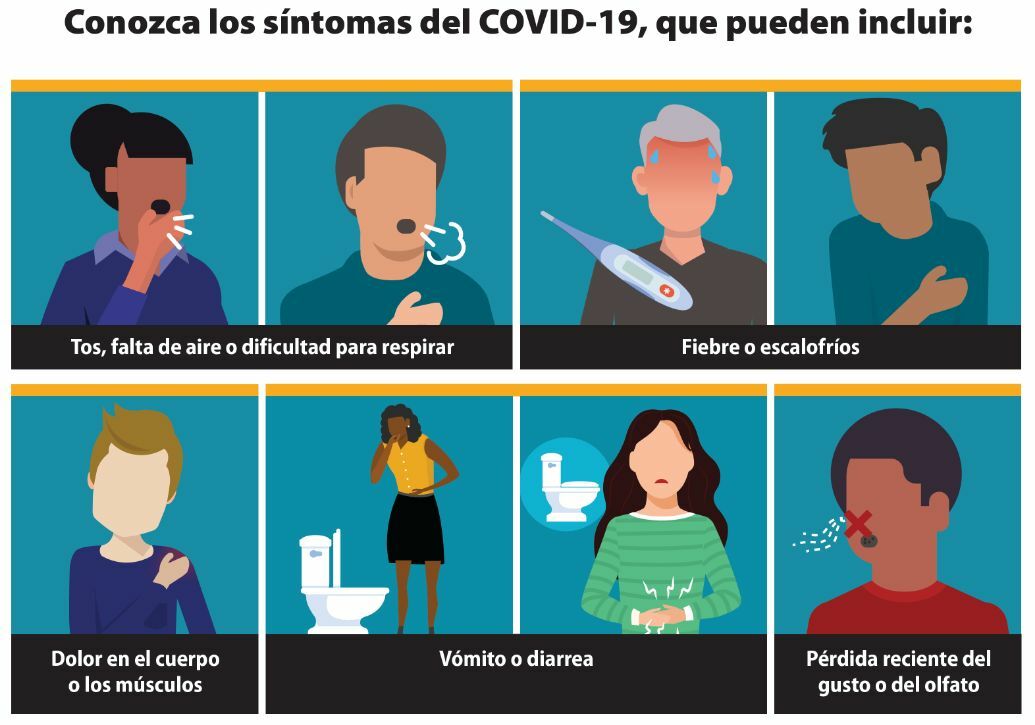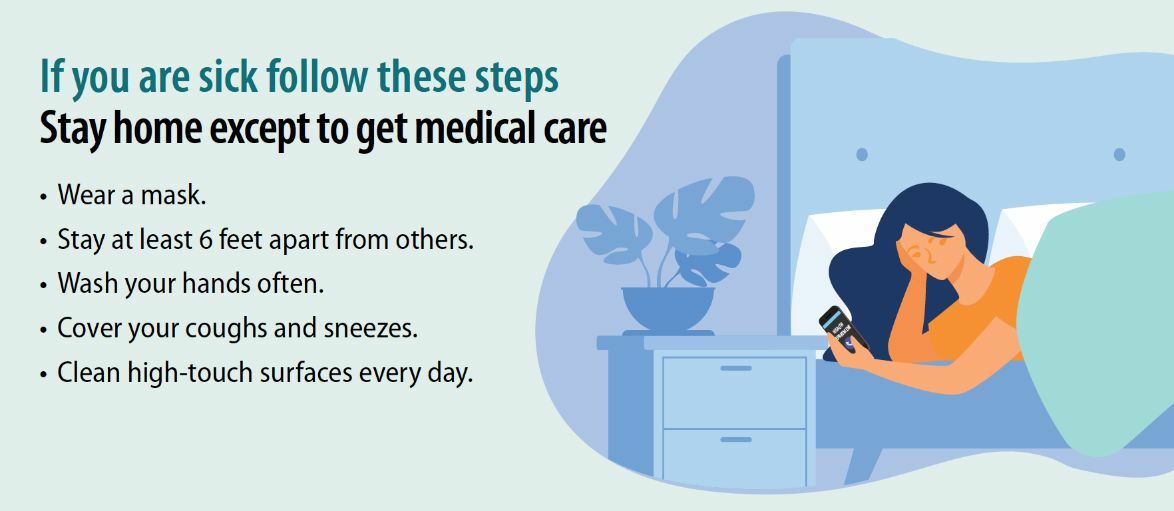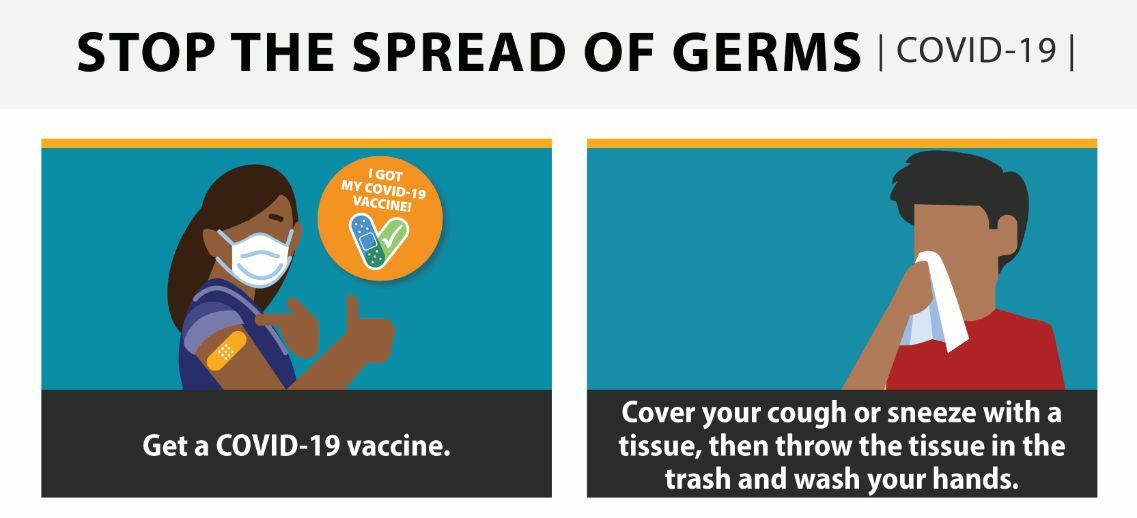How we're keeping our communities safe:
-
Frequent Communication
-
Proper PPE
-
Hand washing stations
-
Frequent sanitization
-
Monitoring staff & residents
-
Staff Education
-
Safe connections
-
Partnering with state & local agencies
9/8/22
From @CDCgov on Instagram
CDC now recommends an updated #COVID19 booster for everyone ages 12 and older. Learn more here.
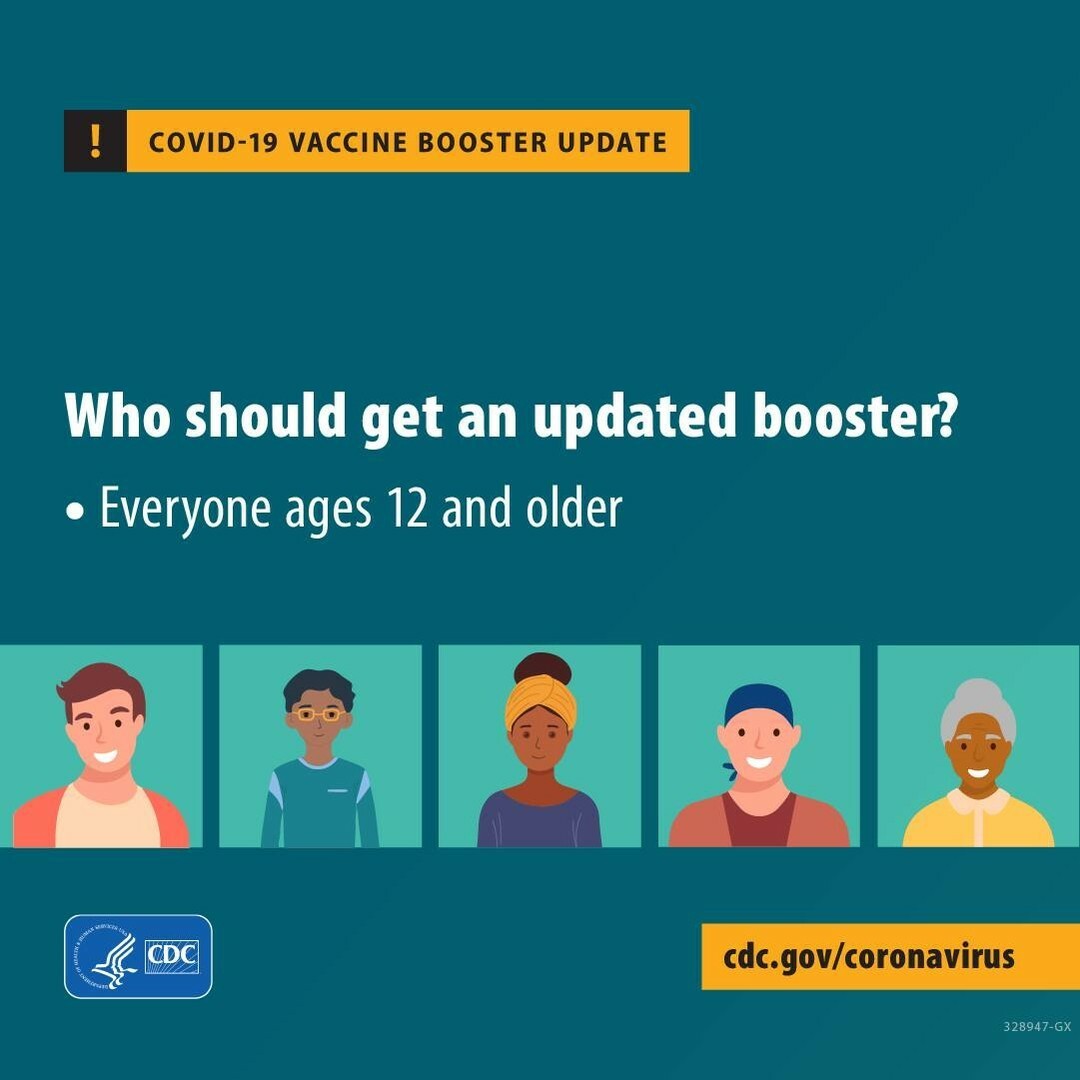
7/18/22
From @CDCgov on Instagram
Are you up to date with your #COVID19 vaccines? Here's what you need to know.
Learn more by visiting cdc.gov.
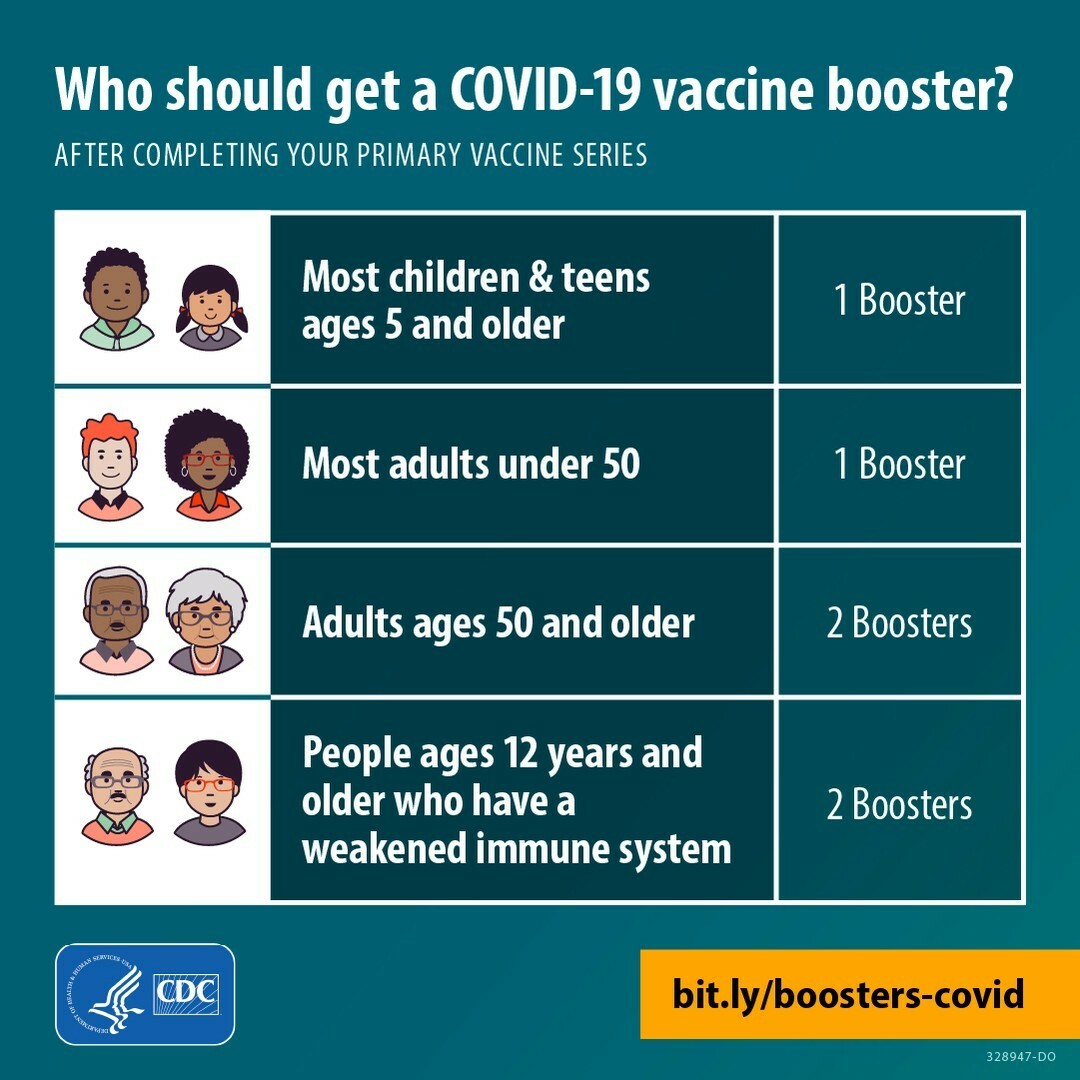
From @CDCgov on Instagram
CDC is updating COVID19 community recommendations.
CDC’s new COVID-19 Community Level tool classifies every county in the U.S. into low, medium, or high. Knowing the COVID-19 Community Level in your area will help determine what prevention measures are needed to protect yourself and your loved ones, as well as decrease strain on hospitals and health systems.
Check your community’s level and learn more here.
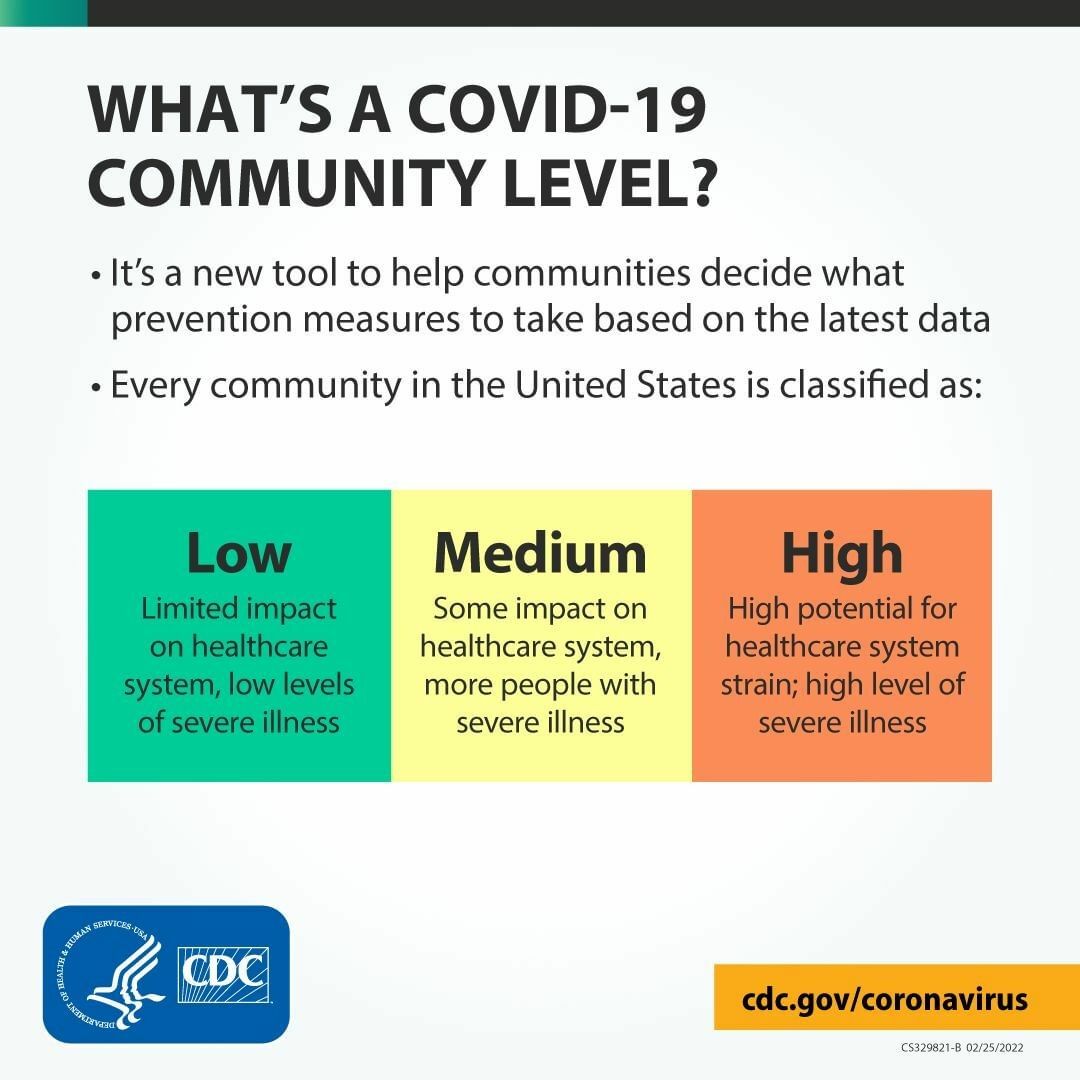
6/27/22
Washing Department of Health has created two videos with guidance for people visiting loved ones in long-term care facilities. You can watch the videos below. Learn more on the WA DOH website.
5/16/22
Please click here to review the CDC's most recent booster guidance (dated May 13, 2022). There is a quiz you can take to determine if you are eligible for the second booster, as well as additional education regarding COVID vaccine boosters.
5/2/22
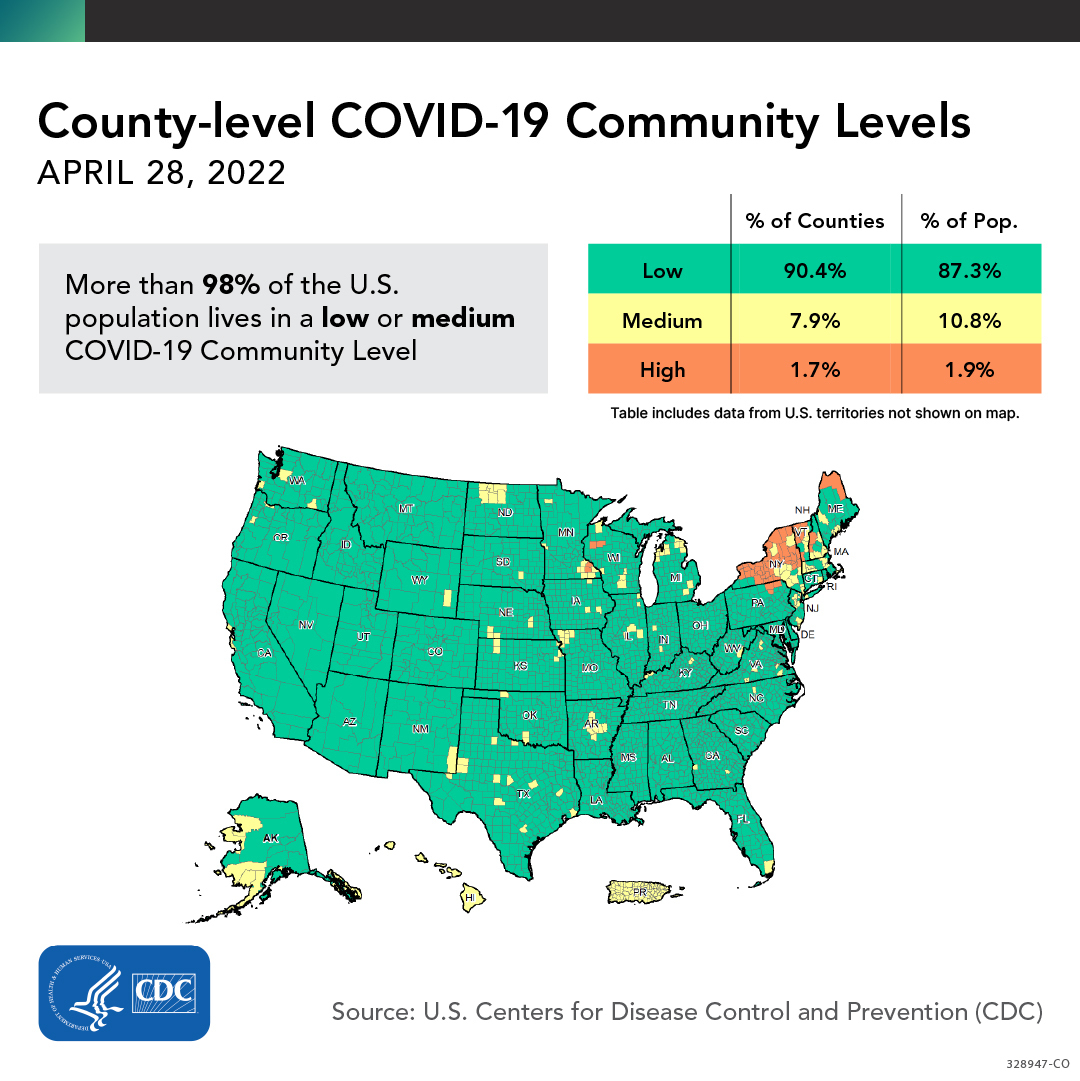
As of April 28, 2022, more than 98% of the U.S. population lives in a location with a low or medium #COVID19 Community Level.
To find your COVID-19 Community Level, see this link.
4/28/22
Per the Washington State Department of Health, Everyone 50 and older and certain immunocompromised individuals 12 and older may now receive an additional booster dose of an mRNA COVID-19 vaccine if 4 months or more have passed since their last booster dose.
Read all of the guidelines here:
https://doh.wa.gov/emergencies/covid-19/vaccine-information/vaccine-booster-doses
3/14/22
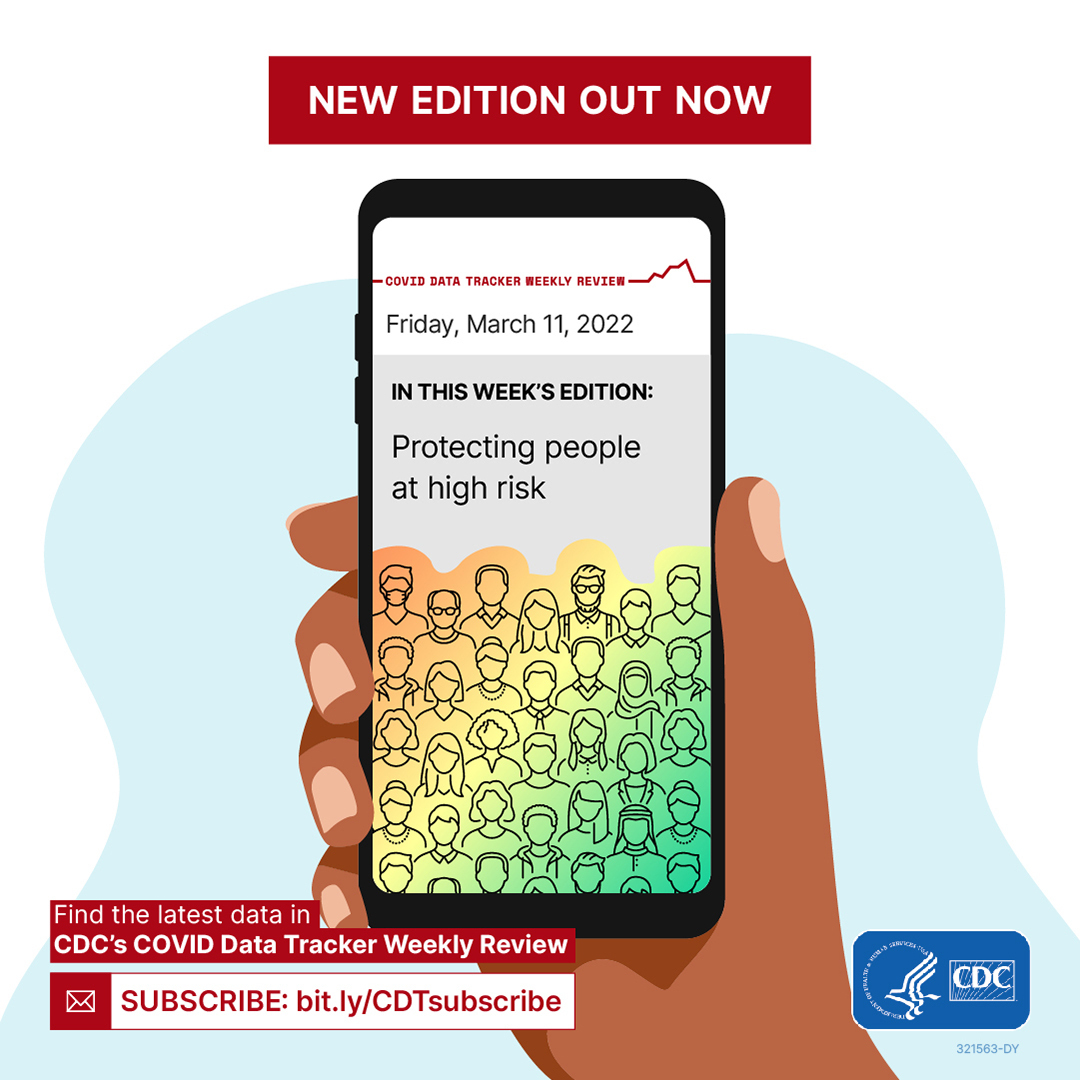
From @CDCgov on Instagram
For many people in the U.S., the risk for severe illness, hospitalization, and death from #COVID19 is now much lower. But some people are still at high risk. As the pandemic enters a new phase, the COVID-19 Community Levels tool can help people at high risk make decisions to protect their health. Learn more in this week’s COVID Data Tracker Weekly Review: http://bit.ly/CDTweeklyreview.
2/24/22
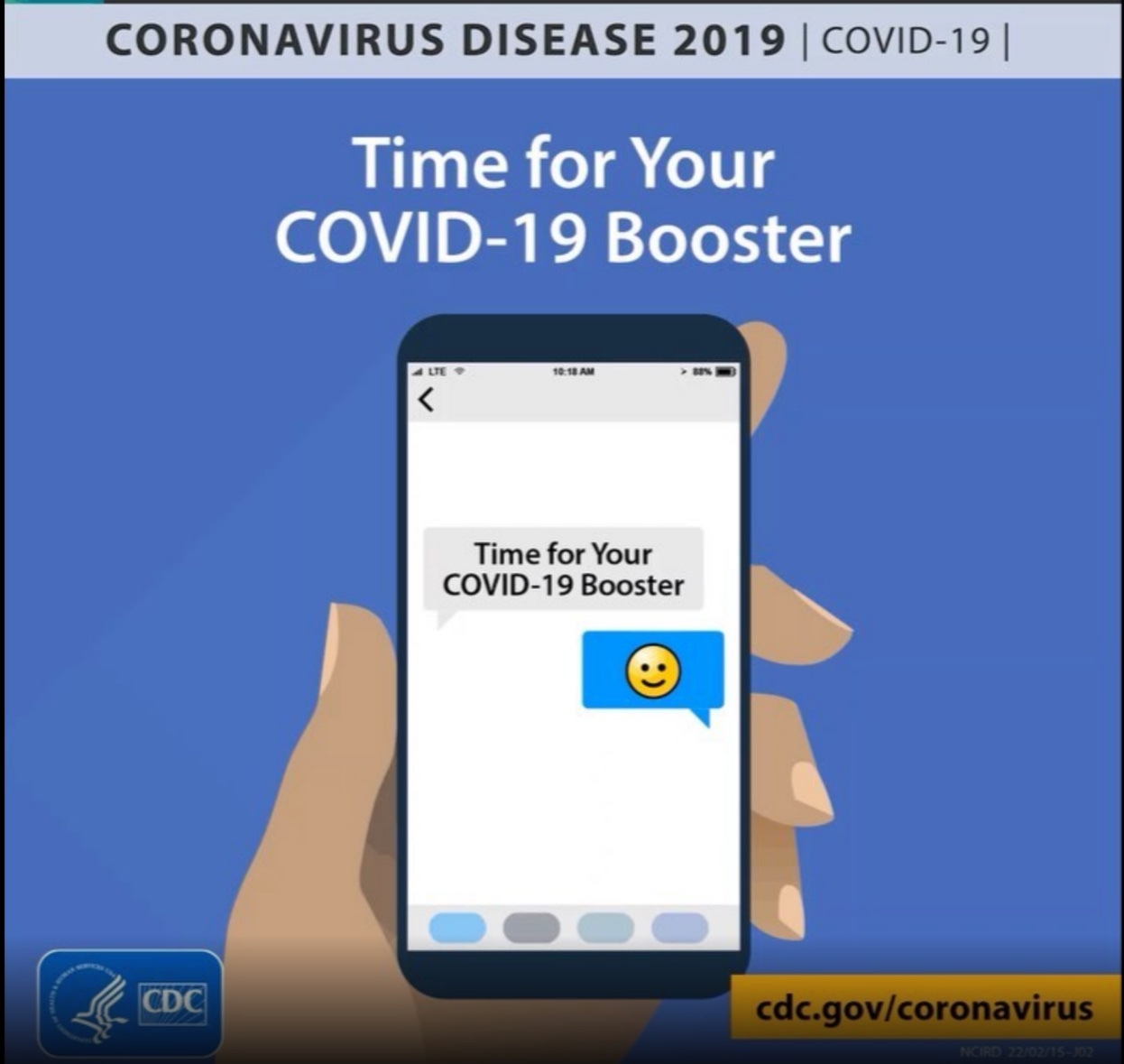
From @CDCgov on Instagram
Is it time for your COVID19 booster?
Put a reminder in your phone or on your calendar to remember when to get your booster shot. If you signed up for health check-ins with v-safe, you’ll get a reminder message.
When it’s time, find a vaccine near you at vaccines.gov.
2/4/22
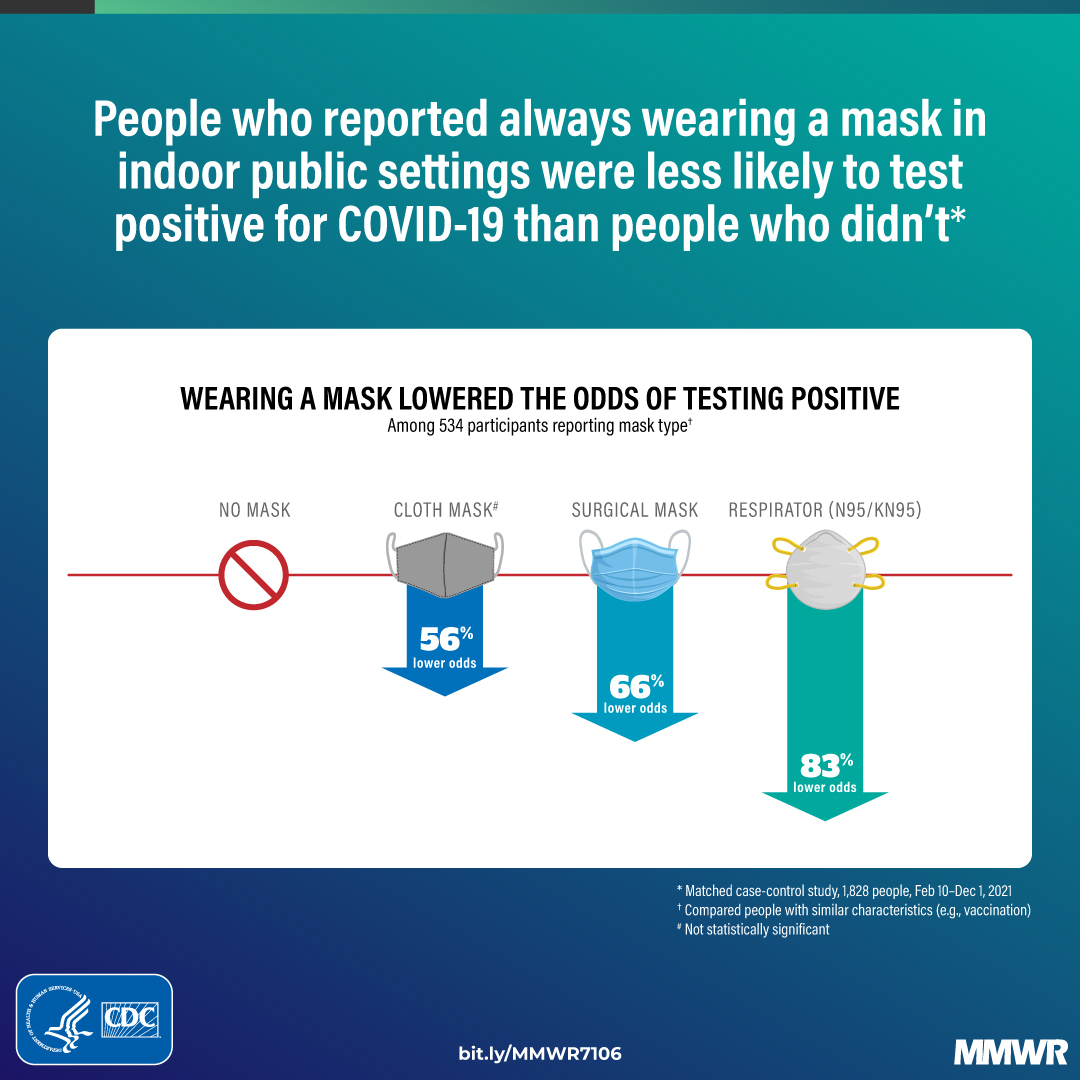
From @CDCgov on Instagram
A new MMWR study shows that wearing a mask indoors helps protect against #COVID19. Compared with those who reported not wearing a face covering, people who reported always wearing one in indoor public settings were less likely to test positive for COVID-19. Respirators (N95/KN95) were most protective. Wear a mask in indoor public settings to help protect yourself and others from COVID-19. Learn more.
1/25/22
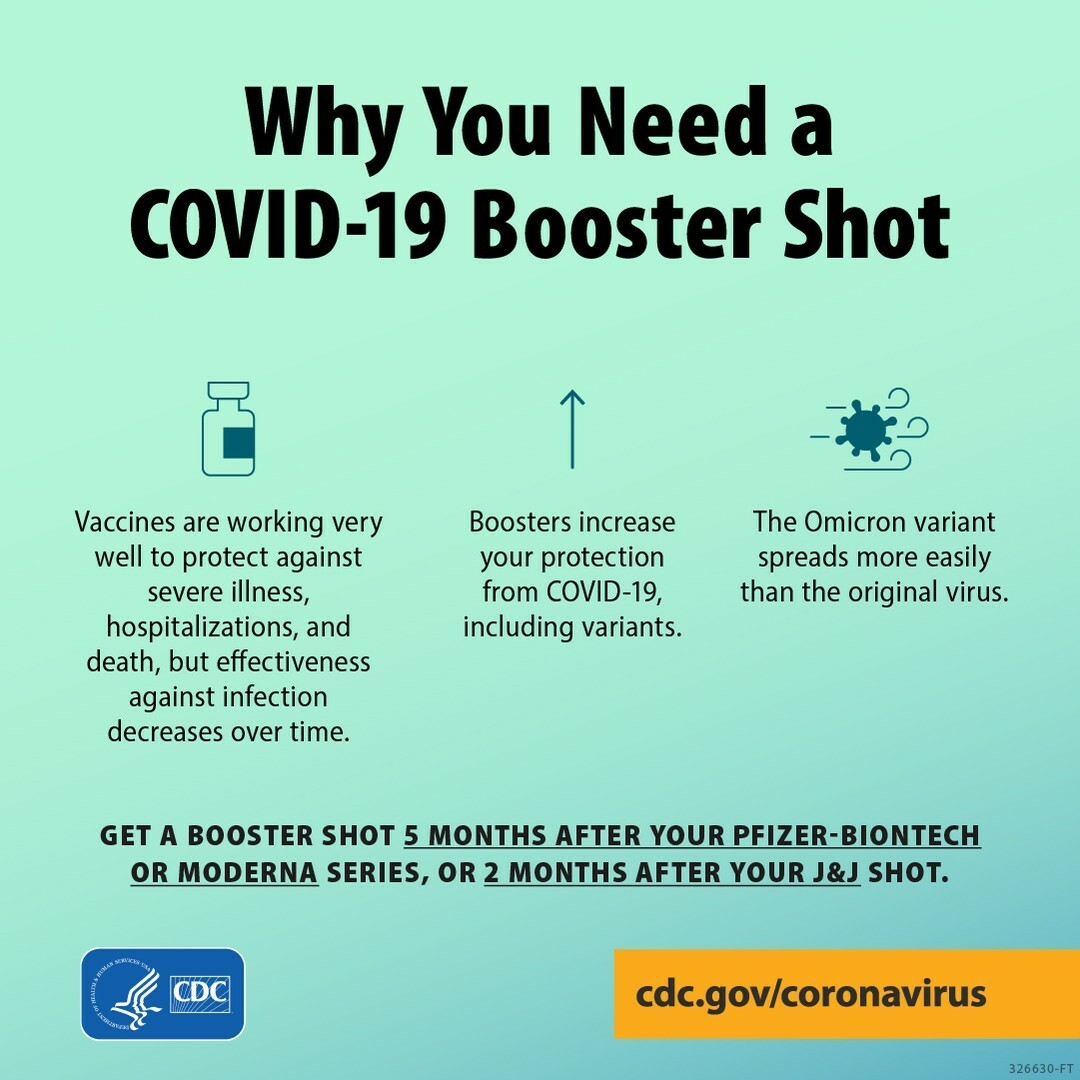
From @CDCgov on Instagram
Get your COVID19 booster shot as soon as you’re eligible for better protection against COVID-19, especially severe illness, hospitalization, and death.
With an mRNA booster, such as Pfizer or Moderna, COVID-19 vaccines become more effective at preventing illness, especially hospitalizations and death. A booster dose greatly increases vaccine effectiveness against infection, the data show.
Get your COVID-19 booster shot as soon as you’re eligible to better protect yourself against COVID-19.
More about boosters.
1/14/22
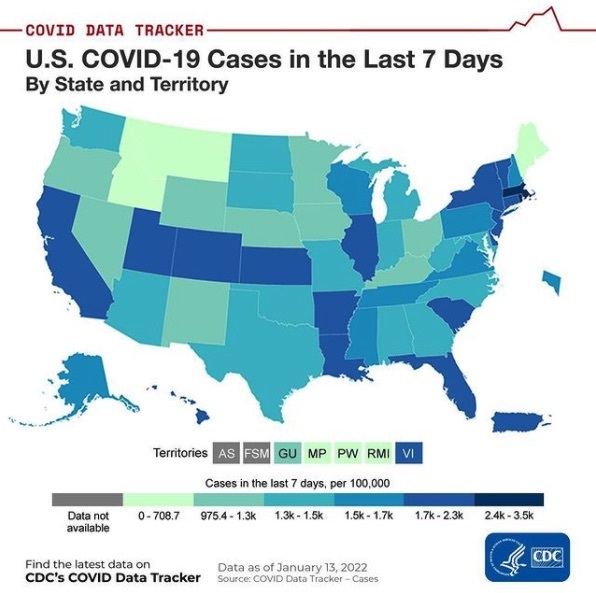
COVID Data Tracker graphic from @CDCgov on Instagram
The CDC shared, "COVID19 cases are continuing to rise rapidly across most of the United States. The current 7-day average of daily new cases is 782,766, a 33.2% increase from the previous week. COVID-19 vaccines are safe and can help prevent COVID-19 and severe illness, hospitalization, and death.
Everyone ages 5+ years is eligible for a free COVID-19 vaccine, and everyone ages 12+ years is eligible for a free COVID-19 booster shot.
Do your part to prevent the spread of COVID-19:
- Get vaccinated.
- Get a booster dose when you’re eligible.
- Wear a mask in indoor public settings.
- Get tested or take a self-test before gathering.
Learn more: https://bit.ly/cdc-casecounts.
12/21/21
This week, Omicron, the new COVID-19 variant, is accounting for 73% of new COVID-19 cases nationwide. Per the CDC, vaccination (original vaccines and the booster), masking, and testing are the best ways fight Omicron.
And who is eligible for a booster? Those 16-18 who completed the primary COVID-19 vaccination series at least 6 months ago are eligible for the Pfizer booster and those 18+ who completed the primary COVID-19 vaccination series at least 2-6 months ago depending on which vaccine series they completed.**
According to the Washington Healthcare Association (WHCA), “Without a booster, the primary COVID-19 [vaccine] series only provides about 30% protection against Omicron. With a booster, after 10 days, the protection increases to about 75%.”
We need your help to keep our communities safe and are asking everyone to:
- Get vaccinated (including booster) – if you or your loved ones have not yet been vaccinated, please consider doing so. You can find a vaccine location near you on the DOH website***
- Commit to excellent infection control – mask appropriately, wash hands frequently, carry hand sanitizer with you and stay home if you have any symptoms
- Consider the risk factors before leaving the community or taking a loved one out of the community – these include vaccination status of yourself, your loved ones and others you will be around, number of people you’ll be around, health status of group (does anyone have symptoms?) and how infection control will be managed. You will also be asked to complete the Department of Health risk assessment before and after the visit.
- If you are visiting the community, please consider completing a rapid test prior to your visit; if test supplies allow, you may be able to test at the community.
